- 0086-571-85302990
- sales@greenskybio.com
Organic konjac powder factory.
2024-11-29

Introduction to Organic Konjac Powder
Organic Konjac Powder is garnering significant attention in the global market. It has emerged as a popular ingredient due to its numerous health benefits and versatile applications. This powder is derived from the konjac plant, which has been used in traditional medicine and cuisine in certain regions for centuries. The increasing awareness of healthy eating and natural products has propelled the demand for organic Konjac Powder.
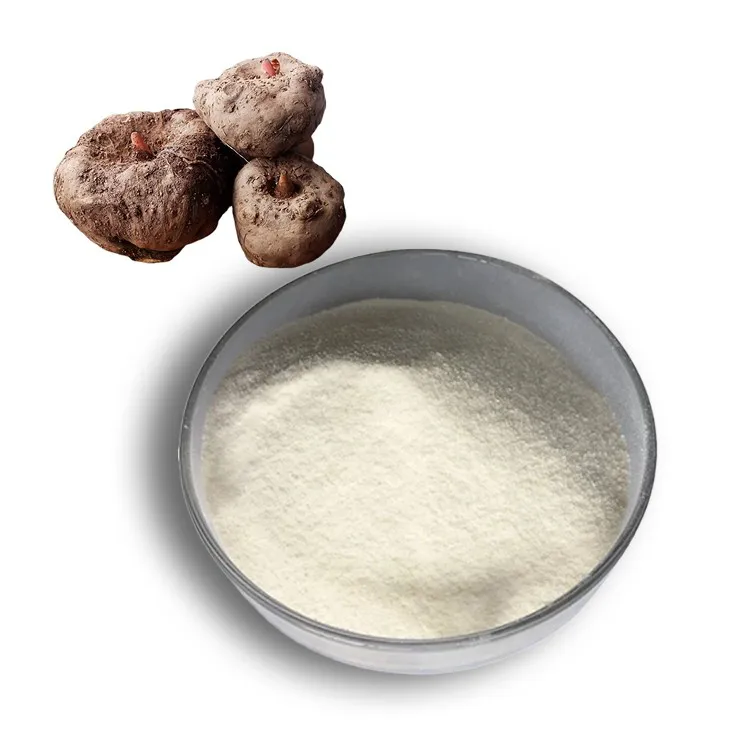
The Role of an Organic Konjac Powder Factory
An organic konjac powder factory is at the heart of this growing industry. It is not just a manufacturing unit but a key entity in ensuring the availability of high - quality konjac powder in the market. The factory's role extends beyond production; it also contributes to the promotion and development of the konjac industry as a whole.
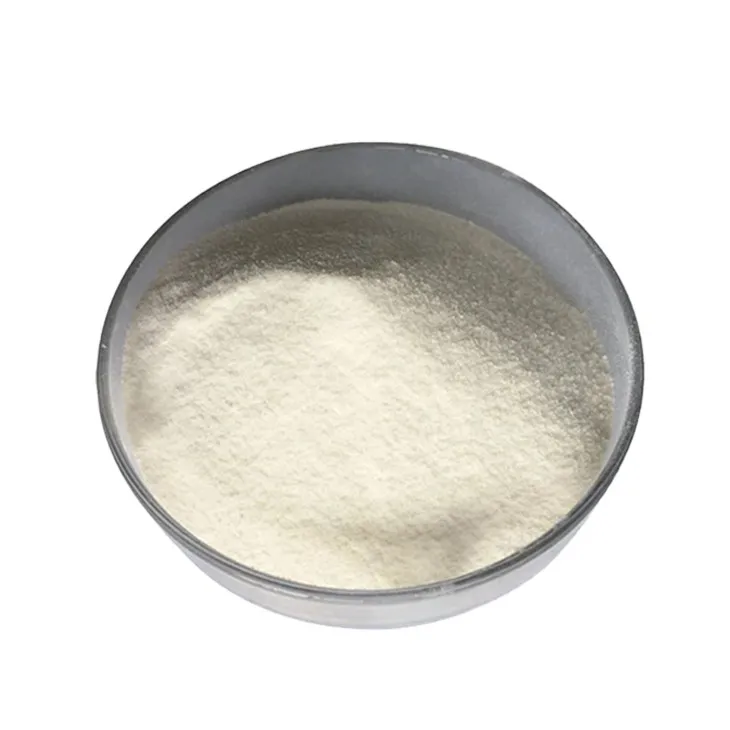
Raw Material Selection
The production process in an organic konjac powder factory commences with the meticulous selection of raw materials. Konjac plants are typically grown in specific regions known for their suitable soil and climate conditions. The factory sources organic konjac raw materials, which are crucial for maintaining the integrity of the final product.
- Sourcing regions: These regions are carefully chosen based on factors such as soil fertility, water availability, and absence of industrial pollution. Konjac plants grown in such areas are more likely to be free from harmful chemicals and contaminants. - Organic certification: The raw materials must meet strict organic certification standards. This ensures that no synthetic pesticides, fertilizers, or genetically modified organisms (GMOs) are involved in the cultivation of the konjac plants.
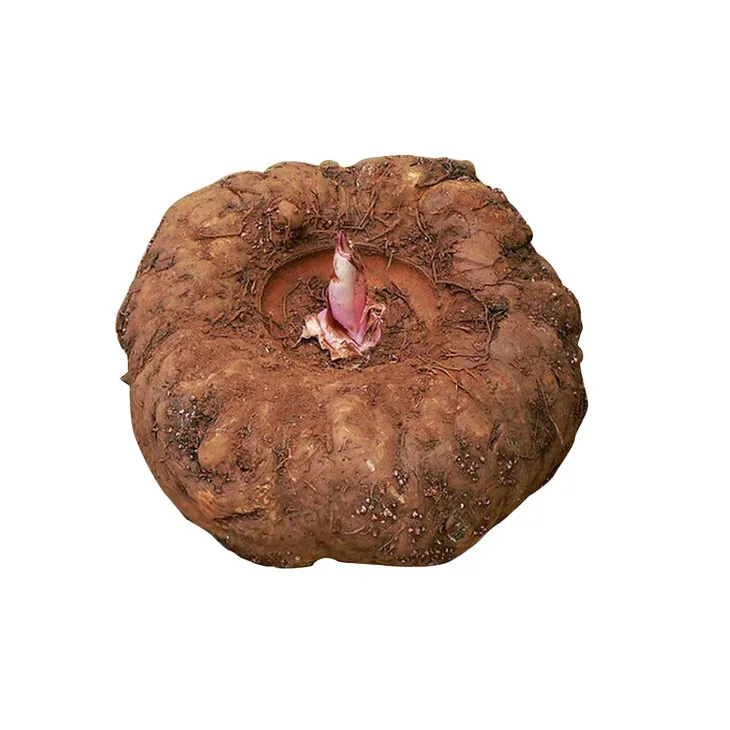
The Production Process
Harvesting
The first step in the production process is the harvesting of konjac tubers. This is a crucial stage as the quality of the harvested tubers directly impacts the quality of the final konjac powder.
- Timing: Harvesting is done at the appropriate time when the konjac tubers have reached the optimal maturity level. This ensures that they contain the right amount of nutrients and have the desired texture. - Harvesting techniques: Skilled laborers use proper tools and techniques to carefully uproot the tubers without causing damage. Damaged tubers may lead to a decrease in the quality of the powder.
Cleaning
Once harvested, the konjac tubers go through a series of cleaning procedures. This is essential to remove any dirt, debris, or impurities that may be present on the surface of the tubers.
- Initial washing: The tubers are first washed with clean water to get rid of the large particles of dirt. - Advanced cleaning: This may involve the use of brushes or other mechanical devices to scrub the tubers thoroughly. In some cases, a mild detergent or sanitizer may be used, but it must be compliant with organic production standards.
Grinding and Drying
After cleaning, the konjac tubers are processed into fine powder through advanced grinding and drying techniques.
- Grinding: The tubers are ground into a coarse paste first and then further refined into a fine powder. High - quality grinding equipment is used to ensure that the powder has a consistent texture. - Drying: The ground paste is then dried to remove the moisture content. Different drying methods such as air drying, vacuum drying, or low - temperature drying may be employed depending on the factory's facilities and the desired quality of the powder.
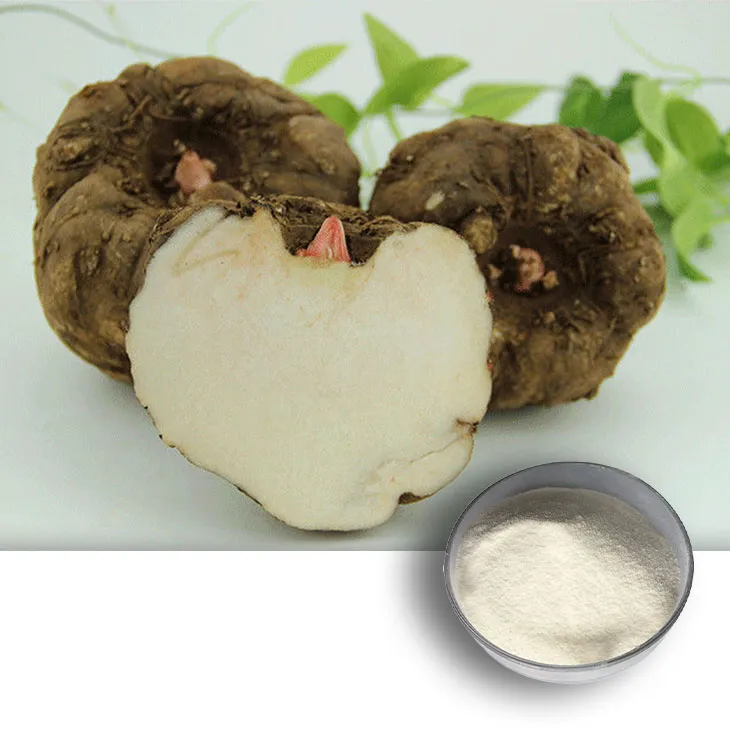
Quality Control in the Factory
Quality control is of paramount importance in an organic konjac powder factory. Stringent tests are carried out at every stage of the production process to ensure that the final product meets the highest organic standards.
- Purity tests: These tests are conducted to determine the purity of the konjac powder. Any foreign substances or adulterants are detected and removed. - Contaminant screening: The factory tests for the absence of contaminants such as heavy metals, pesticides residues (even though it is organic, cross - contamination can be a concern), and microbial contaminants. - Nutrient content analysis: The proper nutrient content in the konjac powder is also verified. This includes the amount of dietary fiber, which is one of the main health - promoting components of konjac powder.
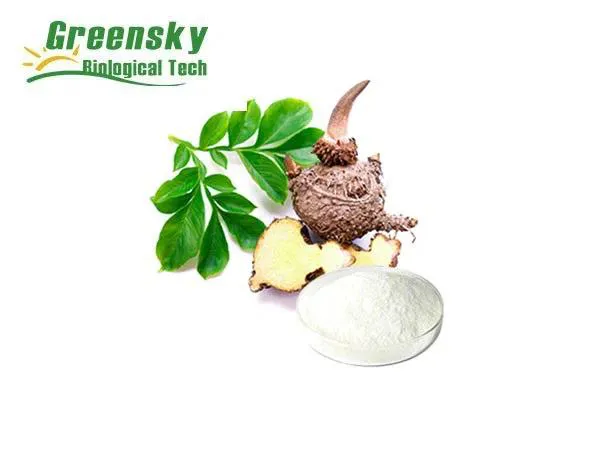
Environmental Protection in the Factory
In today's era of environmental consciousness, an organic konjac powder factory also focuses on environmental protection during the production process.
- Energy - efficient equipment: The factory invests in energy - efficient machinery and equipment. This not only reduces the energy consumption but also lowers the carbon footprint of the production process. - Waste management: Proper waste management is implemented. The waste generated during the production process, such as the peels and other by - products of the konjac tubers, are either recycled or disposed of in an environmentally friendly manner. For example, some waste may be used as compost in local farms.
Research and Development in the Factory
An organic konjac powder factory typically has a professional R & D team. This team is constantly engaged in activities to improve the quality of the konjac powder and develop new products based on it.
- Quality improvement: The R & D team explores ways to enhance the texture, solubility, and overall quality of the konjac powder. This may involve experimenting with different processing techniques or adding natural additives. - New product development: Konjac powder has a wide range of potential applications. The R & D team may develop new food products such as konjac - based snacks, beverages, or even dietary supplements. They also explore non - food applications such as in the cosmetics or pharmaceutical industries.
Conclusion
In conclusion, an organic konjac powder factory is a multi - faceted entity. It is involved in every aspect of the production of konjac powder, from raw material selection to the final product. The factory's commitment to quality control, environmental protection, and research and development makes it not only a production place but also a key player in promoting the healthy development of the konjac industry. As the demand for organic konjac powder continues to rise, these factories will play an increasingly important role in meeting the market needs while maintaining the highest standards of quality and sustainability.
FAQ:
What are the main steps in the production process of organic konjac powder in the factory?
The main steps include harvesting konjac tubers, followed by a series of cleaning procedures to remove dirt and impurities. Then, the tubers are processed into fine powder through advanced grinding and drying techniques.
How does the factory ensure the quality of organic konjac powder?
The factory conducts stringent tests at different production stages. These tests are for purity, absence of contaminants, and proper nutrient content to ensure that the konjac powder meets the highest organic standards.
What role does the R & D team in the organic konjac powder factory play?
The professional R & D team in the factory is constantly exploring ways to improve the quality of the konjac powder. They also work on developing new products based on konjac powder.
How does the factory contribute to environmental protection during production?
The factory adopts sustainable practices such as using energy - efficient equipment and proper waste management during the production process.
Why is the selection of raw materials important in an organic konjac powder factory?
The selection of raw materials is crucial as the factory starts with the careful selection of organic konjac raw materials, typically sourced from konjac plants grown in specific regions. Good raw materials are the foundation for high - quality konjac powder production.
Related literature
- Organic Konjac Production: A Comprehensive Guide"
- "The Role of Organic Konjac Powder in the Modern Food Industry"
- "Quality Assurance in Organic Konjac Powder Manufacturing"
- ▶ Hesperidin
- ▶ Citrus Bioflavonoids
- ▶ Plant Extract
- ▶ lycopene
- ▶ Diosmin
- ▶ Grape seed extract
- ▶ Sea buckthorn Juice Powder
- ▶ Fruit Juice Powder
- ▶ Hops Extract
- ▶ Artichoke Extract
- ▶ Mushroom extract
- ▶ Astaxanthin
- ▶ Green Tea Extract
- ▶ Curcumin
- ▶ Horse Chestnut Extract
- ▶ Other Product
- ▶ Boswellia Serrata Extract
- ▶ Resveratrol
- ▶ Marigold Extract
- ▶ Grape Leaf Extract
- ▶ New Product
- ▶ Aminolevulinic acid
- ▶ Cranberry Extract
- ▶ Red Yeast Rice
- ▶ Red Wine Extract
-
Fenugreek Extract Powder
2024-11-29
-
Coix Seed Extract
2024-11-29
-
Yohimbine Bark Extract
2024-11-29
-
Lemon Balm Extract
2024-11-29
-
Kidney Bean Extract
2024-11-29
-
Curcuma Longa Extract
2024-11-29
-
Lemon Juice Powder
2024-11-29
-
Tinospora cordifolia extract
2024-11-29
-
Europen Bilberry Extract
2024-11-29
-
Green Tea Extract
2024-11-29





















